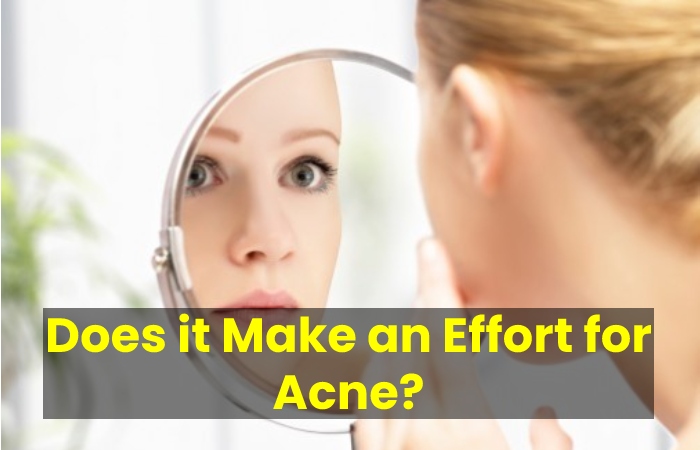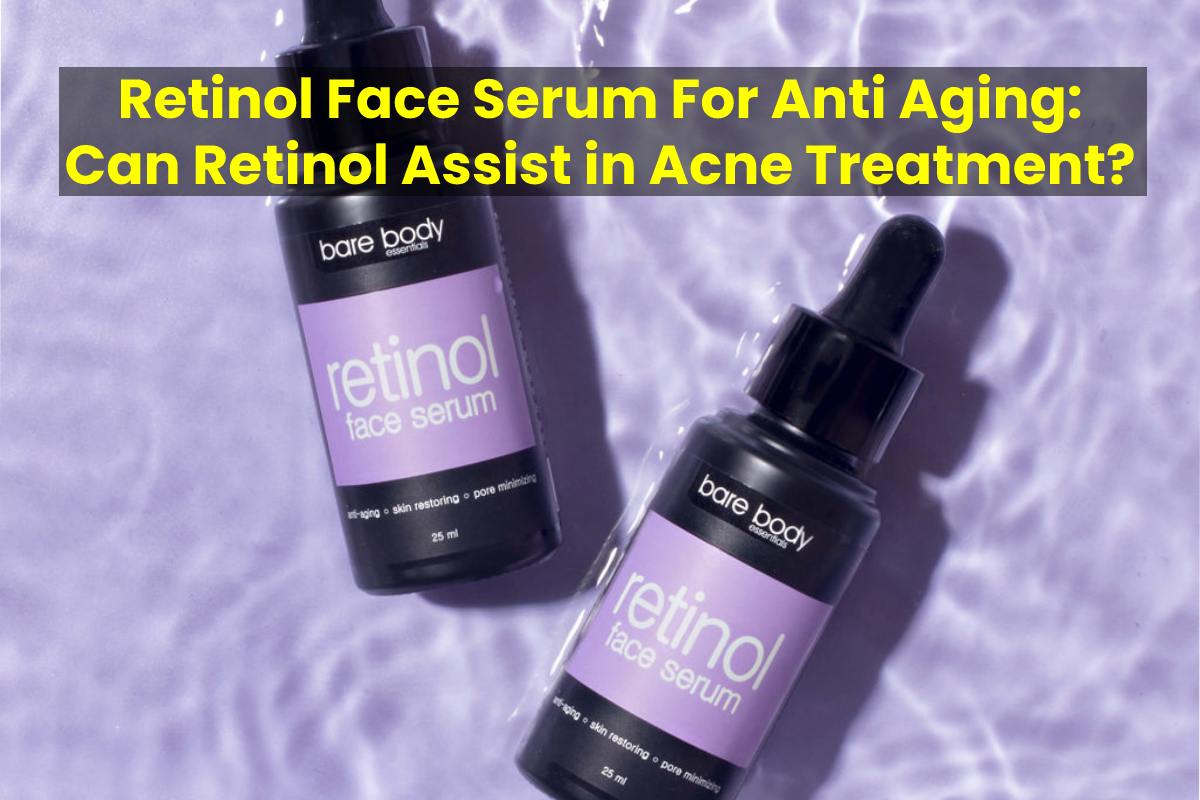Retinol Face Serum For Anti Aging – Retinol is a popular component in skincare products that can help cure minor acne and enhance skin look. It remains offered as serums, gels, creams, lotions, and wipes, and it is a member of a class of medications known as retinoids. What retinol is, how it functions, and how to utilise it are all covered in this article. It will also examine some of the additional advantages of retinol and any possible adverse effects.
Table of Contents
What is Retinol?
RetinolTrusted Source belongs to a group of drugs known as retinoids, which derive from vitamin A. Vitamin A is an essential vitamin that plays a critical roleTrusted Source in immunity, eye health, and skin health. It helps the skin preserve itself by stimulating the production of collagen and elastin proteins.
Retinol is a common ingredient in numerous skin care products, including anti-ageing and anti-acne products trusted Source. Some people may, too, refer to retinol as a cosmeceutical.
It is typically a topical product, available as a cream, gel, or serum that a being can apply straight to their skin. Retinol is not similar to prescription-strength retinoids such as tretinoin. It is less potent than prescription crops, though it is more vital than other over-the-counter retinoids, such as retinyl palmitate.
Does it Make an Effort for Acne?

Since 1971, specialist skin medics, or dermatologists, have optional topical retinoids, such as retinol, to treat skin conditions. In particular, a dermatologist may endorse retinol for acne, fine wrinkles, or hyperpigmentation. Acne can occur when oil and deceased skin cells block pores on the skin. Microorganisms can then mix with the blockage, foremost to inflammation and bumps.
Retinol and other retinoids can assistance unclog the pores and allow the skin to repair itself, reducing swelling and flatting skin. They can also help recover the appearance of acne marks and scars. One 2017 trusted Source study notes that topical retinoids are beneficial for treating noninflammatory and inflammatory acne.
Another trusted study designates that retinoids can reduce sebum production and bring about other effects that can help control acne. Many expert groups and rules suggest that people consider topical retinoids as the foundation of acne treatments.
As retinol is a feebler form of retinoid than the more potent types, it may be most appropriate for mild-to-moderate acne. People with other severe acne may want to discuss other treatment options with a doctor, such as more potent retinoids.
How to use Retinol for Acne
Retinol Face Serum For Anti Aging – People tend to smear retinoid medications to the skin once daily, about 20 or 30 minutes after cleaning their face. Doctors sometimes endorse only using them every other day at first. It is because they can reason skin irritation.
However, this is not similar to all retinol products. Different creams cover different concentrations of retinol and various mixtures of ingredients. Therefore, persons using retinol products should follow the instructions on the label very sensibly.
It is significant to note that retinol, and other retinoids, may thin the outer layer of the trusted Source of the skin, causing augmented sensitivity to sunlight (photosensitivity) and an increased risk of sunburn and sun damage. So, people may prefer to smear retinol nightly and safeguard that they also use sunscreen during the day. It is also worth remembering that the belongings of retinol will only last if the person continues to use the product.
Other Aids of Retinol
In addition to giving acne, retinol has other potential skincare benefits. These include:
- anti-ageing, reducing fine lines and wrinkles
- reducing pigmentation
- improving skin elasticity
- improving skin texture and tone
A 2016 study trusted Source suggests that the topical application of retinol can provide similar anti-ageing effects as more potent retinoids such as retinoic acid. It fixes so by encouraging the formation of collagen, which can recover the appearance of the skin.
In addition to the above skin circumstances, doctors may recommend retinol to treat keratosis pilaris. It is a common skin condition wherein dead skin cells do not flake off and instead plug hair follicles, resulting in tiny bumps.
How Often Can You Use Retinol?
Retinol Face Serum For Anti Aging – Are you thinking about adding a retinol product to your skincare routine? If so, you may wonder how often you should use it: sparingly every day, once weekly. Here’s your complete guide to adding retinol to your life and how often you should use it.
So, How often Should you use Retinol?
The short answer: Finally, most people can use it daily or almost daily if they like.
The long answer depends on what kind of product you’re using, how sensitive your skin is, and what percentage of retinol you use. You’ll likely find it poverty to use retinol once or twice per week and work up to it more than that.
The reason: Retinol can initially dry, especially if you have subtle skin, so it’s a good idea to give your skin some time to adjust to the change in your routine.
According to Joshua Zeichner, MD, an associate lecturer and the director of cosmetic and clinical research at Mount Sinai, you’ll want to use it sparingly at first. He endorses starting with no more than every other day for the first two weeks. If, after the first two weeks, you don’t see any side effects, he says you may want to move up to “2 nights on and one night off.” After a month or so with no side effects, you can likely use it daily if you want. Zeichner also suggests only using retinol at night.
“The evening is a period of rest and repair, and cell turnover is at its peak,” he says. “For this reason, I recommend applying retinol before bed to enhance activities already happening.”
Conclusion
Retinol Face Serum For Anti Aging – One kind of retinoid is retinol. A class of drugs called retinoids remains developed from vitamin A. It remains offered without a prescription in a variety of formulations. Retinol is a potent acne therapy because it facilitates pore unclogging. Additionally, it can enhance skin tone and texture while reducing indications of ageing.
Retinol is not as potent as retinoids, which require a prescription. People may use it to treat mild to severe acne as a result. People with more severe cases of acne may want to discuss prescription-strength treatments with their doctor. Products containing retinol may cause flushing, dryness, and itching as side effects. But with more potent retinoids, they tend to happen more frequently.
Also Read: O3+ D-Tan Pack for Instant Tan Removal

